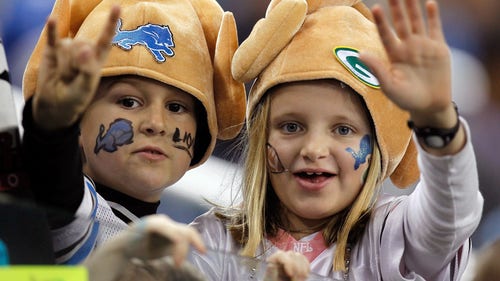Augusta National plays through debate over Ga voting law
AUGUSTA, Ga. (AP) — While a tempest brews outside Magnolia Lane over Georgia’s voting rights law, Augusta National would prefer to keep the focus on blooming azaleas, pimento cheese sandwiches and tricky greens.
That strategy has served the home of the Masters well in previous debates over efforts to keep out Black and female members.
So, it was no surprise when Chairman Fred Ridley played through any attempt Wednesday to ensnare his club in another contentious issue.
“We realize that views and opinions on this law differ, and there have been calls for boycotts and other punitive measures,” Ridley said during his annual State of the Masters news conference on the eve of the opening round. “Unfortunately, those actions often impose the greatest burdens on the most vulnerable in our society."
There was never any doubt Augusta National would take a different path than Major League Baseball, which
after a record turnout last November, fueled by absentee and early voting, led to Joe Biden becoming the first Democratic presidential candidate since 1992 to carry the Peach State. Then, in a January runoff election, Raphael Warnock and Jon Ossoff unseated a pair of GOP incumbents in Georgia to effectively swing the balance of power in the U.S. Senate.
Supporters of the law, including Kemp, have said it's nothing more than an attempt to preserve electoral integrity on the heels of
“I believe, as does everyone in our organization, that the right to vote is fundamental in our democratic society," Ridley said. “No one should be disadvantaged in exercising that right, and it is critical that all citizens have confidence in the electoral process."
When asked bluntly if he supported or opposed the new law, Ridley laid up.
“I don’t think that my opinion on this legislation should shape the discussion,” he said. “I know you would like for us to make a proclamation on this. I just don’t think that is going to be helpful to ultimately reaching a resolution.”
Ridley's stance was very much in keeping with the club’s history on other racial and social matters.
For decades, Augusta National had no black members. It was only in 1975 that Lee Elder became the first Black player to be invited to the Masters. Finally, after protests erupted over the 1990 PGA Championship being held at
More recently, the club steadfastly rebuffed calls to allow female members.
Again, there was little fanfare about the decision.
Now, it’s voting rights.
MLB’s decision last week to strip the All-Star Game from Atlanta’s Truist Park turned the focus to the Masters, the first of three prominent golf tournaments that will be held in Georgia this year.
The Women’s PGA Championship is set for the Atlanta Athletic Club in June, while the PGA Tour’s season-ending Tour Championship will be staged in September at East Lake in Atlanta, which took over as the event’s permanent home in 2004.
The National Black Justice Coalition called for the Masters to be moved out of Georgia, but that was never a serious consideration. Augusta National controls every aspect of the tournament and would never think of it being played anywhere but its historic layout along Washington Road, one of the most famous golf courses in the world.
For that matter, the
Similar to East Lake,
But even if moving the Masters was never on the table, anyone with a knowledge of golf’s checkered racial history would have suspected it was never going to be a leading voice on voting rights. The PGA had a Caucasian-only policy until 1961, 14 years after Jackie Robinson broke baseball’s color barrier.
Cameron Champ is one of the few players on color on the PGA Tour (he has a Black father and white mother). Last year, as protests roiled the country after the killings of George Floyd, Breonna Taylor and Ahmaud Arbery, as well as the shooting of Jacob Blake,
At the BMW Championship, he wore one black shoe and one white shoe. He also wrote the names of Taylor and Blake on his footwear.
“I remember walking onto the range, and I had Breonna Taylor and Jacob Blake on my shoes, and I got asked by three different people, ‘Who are they?’” Taylor said this week. “That proves the point of why I’m doing it.”
So far, no golfers have followed his lead.
“There’s not many people who are willing to talk about it, so you’re never going to hear it,” Champ said. “It just kind of gets pushed to the back burner like it does always.”
Everyone at Augusta National says they support equal voting rights, but Champ was the only one who stated his opposition to the Georgia law, which
“As you can tell, it really targets certain black communities and makes it harder to vote, which to me it’s everyone’s right to vote,” Champ said. “For me to see that, it’s very shocking."
In a sport where Trump enjoyed widespread support,
When asked for his opinion of the Georgia voting law, McIlroy picked his words carefully.
“I’m not a citizen of this country, but I certainly think all great countries and democracies are built on equal voting rights and everyone being able to get to the ballot boxes as easily as possible,” he said.
But now, it’s time to tee it up.
In something of a nod to the uglier parts of its history,
After that, there likely will be no more discussion about Georgia’s voting law at the home of the Masters.
___
Follow Paul Newberry on Twitter at https://twitter.com/pnewberry1963 His work can be found at https://apnews.com/search/paulnewberry
___
More AP golf: https://apnews.com/apf-Golf and https://twitter.com/AP_Sports








